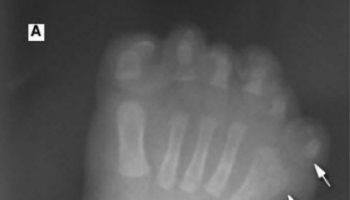Contents
What is Pyelonephritis
Pyelonephritis also known as kidney infection, is a type of urinary tract infection (UTI) that can make you very unwell, but will usually get better after treatment. Most pyelonephritis are caused by bacteria or viruses that first infect your lower urinary tract, usually your bladder. Then, the infection moves upstream to one or both of your kidneys, which are part of the upper urinary tract. In some cases, you can get a kidney infection after surgery if bacteria enter your body during the procedure and travel through your blood to the kidneys.
If you think you might have symptoms of a bladder infection or pyelonephritis (kidney infection), you should see a doctor as soon as you can. Kidney infections are often very painful and can cause serious health problems. You can lower the risk of damage to your kidneys by getting prompt treatment.
Seek care right away if you have pyelonephritis (kidney infection) symptoms. Pyelonephritis can sometimes lead to a dangerous condition called sepsis , which can be life threatening. Symptoms of sepsis include fever, chills, rapid breathing and heart rate, rash, and confusion.
A pyelonephritis (kidney infection) that becomes chronic, or long lasting, can cause permanent damage to your kidneys.
Pyelonephritis (kidney infections) cause most of the 100,000 hospital visits for urinary tract infections (UTIs) in the United States each year 1.
Make an appointment with your doctor if you have worrisome signs or symptoms. If you’re being treated for a urinary tract infection but your signs and symptoms aren’t improving, make an appointment.
Severe kidney infection can lead to life-threatening complications. Seek immediate medical attention if you have kidney infection symptoms combined with bloody urine or nausea and vomiting.
Who is more likely to develop pyelonephritis?
You are more likely to develop pyelonephritis (kidney infection) if you:
- are a woman 2
- have a urinary tract infection (UTI) in the bladder.
- had a urinary tract infection (UTI) during the past 12 months.
- are pregnant. Scientists think that hormonal changes and shifts in the position of the urinary tract during pregnancy make it easier for bacteria to travel to the kidneys and cause infection.
- have a problem in your urinary tract that blocks or changes the normal flow of urine. The flow of urine may be blocked if you have a defect in the structure of your urinary tract, such as a narrowed urethra, an enlarged prostate, or a kidney stone.
- have vesicoureteral reflux, which is when urine can back up, or reflux, into one or both kidneys. Health care professionals most commonly diagnose vesicoureteral reflux in children 3.
- have diabetes or problems with your body’s immune, or natural defense, system.
- have a spinal cord injury or nerve damage around the bladder.
- have trouble emptying your bladder completely, called urinary retention.
Pyelonephritis types
Pyelonephritis can be acute or chronic. If you have one, but it goes away after treatment, that condition is acute pyelonephritis.
Chronic pyelonephritis comes and goes, or may never go away properly. Chronic pyelonephritis can damage your kidneys. It usually occurs if there is a problem that causes urine to flow backwards from the bladder and up into the kidneys.
Pyelonephritis causes
Pyelonephritis are usually caused by bacteria or viruses. The bacteria can spread to the kidneys from a bladder infection. Some people with diabetes, or with a blockage in their urinary tract, are more likely to get a kidney infection.
Scientists believe that most kidney infections start as a bladder infection that moves upstream to infect one or both of your kidneys. Most often, pyelonephritis is caused by bacteria that normally live in your bowel. The urinary tract has several ways to prevent infection from moving up the urinary tract. For example, urination most often flushes out bacteria before it reaches the bladder. Sometimes your body can’t fight the bacteria and the bacteria cause a urinary tract infection (UTI). If you don’t get medical treatment to stop the infection, the bacteria may infect your kidneys.
In some cases, your blood can carry bacteria or viruses from another part of your body to your kidneys.
Risk factors for pyelonephritis
Factors that increase your risk of pyelonephritis include:
- Being female. The urethra is shorter in women than it is in men, which makes it easier for bacteria to travel from outside the body to the bladder. The nearness of the urethra to the vagina and anus also creates more opportunities for bacteria to enter the bladder. Once in the bladder, an infection can spread to the kidneys. Pregnant women are at even higher risk of a kidney infection.
- Having a urinary tract blockage. This includes anything that slows the flow of urine or reduces your ability to empty your bladder when urinating — including a kidney stone, something abnormal in your urinary tract’s structure or, in men, an enlarged prostate gland.
- Having a weakened immune system. This includes medical conditions that impair your immune system, such as diabetes and HIV. Certain medications, such as drugs taken to prevent rejection of transplanted organs, have a similar effect.
- Having damage to nerves around the bladder. Nerve or spinal cord damage can block the sensations of a bladder infection so that you’re unaware when it’s advancing to a kidney infection.
- Using a urinary catheter for a time. Urinary catheters are tubes used to drain urine from the bladder. You might have a catheter placed during and after some surgical procedures and diagnostic tests. You might use one continuously if you’re confined to a bed.
- Having a condition that causes urine to flow the wrong way. In vesicoureteral reflux, small amounts of urine flow from your bladder back up into your ureters and kidneys. People with this condition are at higher risk of kidney infection during childhood and adulthood.
Pyelonephritis prevention
You can reduce your risk of getting a kidney infection by drinking plenty of water and by seeing your doctor if you think you have a urinary tract infection. If you tend to get urinary tract infections after having sex, then make sure you pass urine as soon as possible after sex.
Women, in particular, may reduce their risk of urinary tract infections if they:
- Drink fluids, especially water. Fluids can help remove bacteria from your body when you urinate.
- Urinate as soon as you need to. Avoid delaying urination when you feel the urge to urinate.
- Empty the bladder after intercourse. Urinating as soon as possible after intercourse helps clear bacteria from the urethra, reducing your risk of infection.
- Wipe carefully. Wiping from front to back after urinating and after a bowel movement helps prevent bacteria from spreading to the urethra.
- Avoid using feminine products in the genital area. Using products such as deodorant sprays in your genital area or douches can be irritating.
Scientists are still trying to understand the best ways to prevent bladder infections, but these small changes in your daily habits may help:
Drink lots of liquid, especially water
Liquids can help flush bacteria from the urinary system. Water is best. Most healthy people should try to drink six to eight, 8-ounce glasses of liquid each day. If you need to drink less water because of other health conditions, such as bladder control problems, kidney failure or heart disease , ask your health care provider how much liquid is healthy for you.
Wipe from front to back after using the toilet
Women should wipe from front to back to keep bacteria from getting into the urethra. This step is most important after a bowel movement.
Urinate often and when the urge arises
Try to urinate at least every 3 to 4 hours. Bacteria are more likely to grow in the bladder when urine stays in the bladder too long.
Urinate after sex
Both women and men should urinate shortly after sex to flush away bacteria that may have entered the urethra during sex.
Can drinking liquid help prevent or relieve kidney infections?
Yes. Drink six to eight, 8-ounce glasses a day. Talk with a health care professional if you can’t drink this amount due to other health problems, such as urinary incontinence, urinary frequency, or kidney failure. The amount of liquid you need to drink depends on the weather and your activity level. If you live, work, or exercise in hot weather, you may need more liquid to replace the fluid you lose through sweat.
Can my eating, diet, and nutrition help prevent kidney infections?
Experts don’t think eating, diet, and nutrition play a role in preventing or treating kidney infections.
Pyelonephritis symptoms
Symptoms of pyelonephritis vary by age. Symptoms may include
- chills
- fever
- kidney pain, which you feel in your back or your side or groin
- nausea
- vomiting
- cloudy, dark, bloody (hematuria) or foul-smelling urine
- frequent, painful urination
- a burning pain when you pass urine
- a need to pass urine more often than usual
A child younger than 2 years old with pyelonephritis may only have a high fever.
An adult older than age 65 with pyelonephritis may have none of the typical symptoms. An older person may only have problems with thinking, such as
- confusion
- hallucinations
- jumbled speech
Pyelonephritis complications
In rare cases, kidney infections may cause:
- High blood pressure
- Kidney failure
- Permanent kidney scars, called renal scarring, which can lead to chronic kidney disease
- Blood poisoning (septicemia). Your kidneys filter waste from your blood and return your filtered blood to the rest of your body. Having a kidney infection can cause the bacteria to spread through your bloodstream.
- Pregnancy complications. Women who develop a kidney infection during pregnancy may have an increased risk of delivering low birth weight babies.
Your chance of a complication is slightly greater if you have:
- kidney disease from other causes
- a problem with the structure of your urinary tract
- repeated episodes of kidney infection
Complications from a kidney infection are rare if a health care professional prescribes antibiotics to treat your infection.
Pyelonephritis diagnosis
Your doctor will talk to you and examine you. If they suspect you have a kidney infection, they may ask you to have some tests. A urine test can help determine whether there is an infection in your urinary tract.
If you are a man and the health care professional suspects you have a kidney infection, he or she may perform a digital rectal examination (DRE). During a digital rectal examination, the health care professional has you bend over a table or lie on your side while holding your knees close to your chest. After putting on a glove, the health care professional slides a lubricated finger into your anus to check for a swollen or enlarged prostate blocking the neck of your bladder.
You may need an ultrasound to make sure there is no blockage in your urinary tract. You might also have blood tests to check for infection in the bloodstream.
Lab tests
Urinalysis. For a urinalysis, you will collect a urine sample in a special container at a doctor’s office or at a lab. A health care professional will look at the sample under a microscope for bacteria and white blood cells, which the body produces to fight infection. Bacteria also can be found in the urine of healthy people, so a kidney infection is diagnosed based both on your symptoms and a lab test.
Urine culture. A health care professional may culture your urine to find out what type of bacteria is causing the infection. A health care professional can see how the bacteria have multiplied, usually in 1 to 3 days, and can then determine the best treatment.
Imaging tests
A health care professional may use imaging tests, such as a computed tomography (CT) scan, magnetic resonance imaging (MRI), or ultrasound, to help diagnose a kidney infection. A technician performs these tests in an outpatient center or a hospital. A technician may perform an ultrasound in a doctor’s office as well. A radiologist reads and reports on the images. You don’t need anesthesia for these tests. Read more about imaging tests for your urinary tract.
Pyelonephritis treatment
If you have pyelonephritis (kidney infection), you might need to start your treatment in hospital. Even before your test results are in, your doctor may prescribe an antibiotic that fights the most common types of bacteria. At first, antibiotics are given through a drip called by IV. How long you’ll stay in the hospital depends on the severity of your condition. When you have improved sufficiently, you can take your antibiotics orally (by mouth). You can do this at home. Although you may feel relief from your symptoms, make sure to take the entire antibiotic treatment that your health care professional prescribes.
Once your lab results are in, your health care professional may switch the antibiotic to one that better treats the type of infection you have. You may take these antibiotics by mouth, through a vein in your arm or both.
If you are in pain, acetaminophen (paracetamol) may provide some relief. You can also ask your doctor what else might help.
To reduce discomfort while you recover from a kidney infection, you might:
- Apply heat. Place a heating pad on your abdomen, back or side to ease pain.
- Use pain medicine. For fever or discomfort, take a non-aspirin pain reliever such as acetaminophen (Tylenol, others) or ibuprofen (Motrin IB, Advil, others).
- Stay hydrated. Drinking fluids will help flush bacteria from your urinary tract. Avoid coffee and alcohol until your infection has cleared. These products can worsen the feeling of needing to urinate.
If something such as a kidney stone or an enlarged prostate is blocking your urinary tract, a doctor can sometimes treat the problem with surgery or another procedure.
Treatment for recurrent kidney infections
An underlying medical problem such as a misshapen urinary tract can cause you to get repeated kidney infections. In that case, you might be referred to a kidney specialist (nephrologist) or urinary surgeon (urologist) for an evaluation. You might need surgery to repair a structural abnormality.
How can I make sure my pyelonephritis is completely gone?
If you recently had pyelonephritis, your doctor will often repeat urine cultures after your treatment ends to make sure your infection has completely gone away and has not come back. If a repeat test shows infection, you may take another round of antibiotics. If your infection comes back again, he or she may prescribe antibiotics for a longer time period.
If your doctor prescribes antibiotics, take all of the antibiotics as prescribed and follow the advice of your doctor. Even if you start to feel better, you should finish all of your medicine.
- Grabe M, Bartoletti R, Bjerklund Johansn T.E., Cai T. Guidelines on Urological Infections. European Association of Urology; The Netherlands: 2015[↩]
- Czaja CA, Scholes D, Hooton TM, Stamm WE. Population-based epidemiologic analysis of acute pyelonephritis. Clinical Infectious Diseases. 2007;45(3):273–280.[↩]
- Guarino N, Casamassima MG, Tadini B, Marras E, Lace R, Bianchi M. Natural history of vesicoureteral reflux associated with kidney anomalies. Urology. 2005;65(6):1208–1211.[↩]





